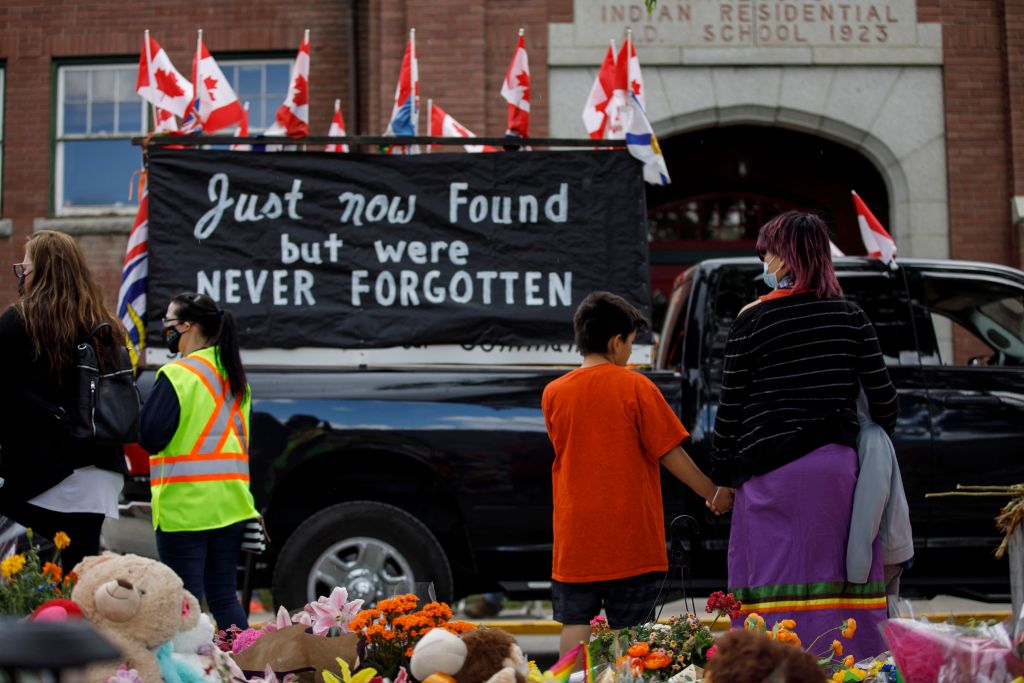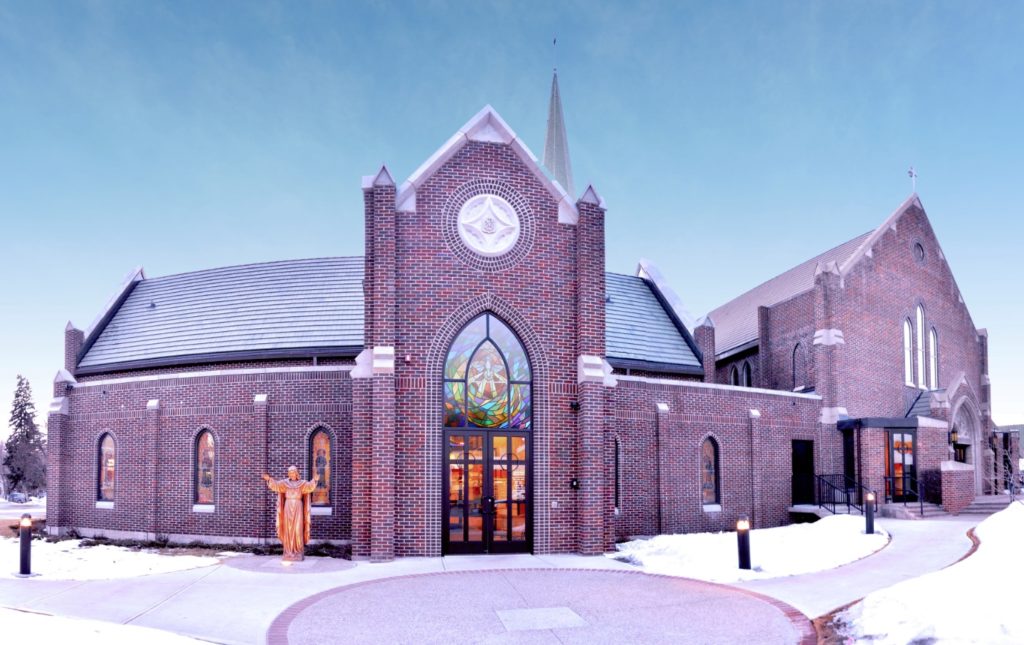Canada’s Government Loves Censorship as Criminals Are in Charge (Can’t Have Reporting on THEIR Crimes)
Canada’s government is seeking to silence Canadian journalists at home and abroad with a draconian censorship billby Eva Bartlett |
June 30, 2021, RT.com
As a Canadian journalist, I could be subject to a censorship bill which, if passed in Senate, means the government in Canada can effectively shadow-ban and censor my voice into oblivion, along with other dissenting voices.
After seeing his tweet on the issue of Bill C-10, recently passed in the House of Commons, I spoke with Canadian journalist Dan Dicks about this. He explained that the bill is being presented as being about Canada bringing Big Tech companies under the regulation of the CRTC (Canadian Radio-television and Telecommunications Commission), to have them display more Canadian content.
“But what people are missing,” he cautioned, “is that there were clauses put into this bill, protections for certain publishers and content creators that would protect people like myself and yourself.”
Those clauses, he said, were recently removed from the bill, leading many content-creating Canadians aware of the bill to worry they will be treated the same as a broadcaster or a programmer, subject to the regulations of the CRTC.
The bottom line is that, beyond the mumbo jumbo of the government, this is the latest attack on freedom of expression, and on dissent.
“It really appears that it’s a backdoor to be able to control the free flow of information online, and to begin to silence voices that go against the status quo,” Dicks said, warning that fines for violators could follow.
“It’s not looking good for individual content creators. Anybody who has any kind of a voice or a significant audience, where they have the ability to affect the minds of the masses, to reach millions of people, they are going to be the ones who are on the chopping block moving forward.”
Names like James Corbett come to mind. Although based in Japan, as a Canadian he would be subject to the bill. And with his very harsh criticisms of many issues pertaining to the Canadian government, he is a thorn they would surely be happy to remove under the pretext of this bill.
Or Dicks, who likewise creates videos often critiquing Canadian government actions.
Or researcher Cory Morningstar, authors Maximilian Forte, Mark Taliano, Yves Engler, or outspoken physicist Denis Rancourt, to name a handful of dissenting voices. Agree or not with their opinions, they have the right to voice them.
Or myself. I’ve been very critical of Canada’s Covid policies and hypocrisy, as well as Canada’s whitewashing of terrorism in Syria, support to neo-Nazis in Ukraine, and unwavering support for Israel which is systematically murdering, starving, and imprisoning Palestinian civilians–including children.
An article on the Law & Liberty website, which describes itself as focussing on “the classical liberal tradition of law and how it shapes a society of free and responsible persons,” notes the bill enables “ample discretion to filter out content made by Canadians that doesn’t carry a desirable ideological posture and [to] prioritize content that does.”
The article emphasizes that the bill violates Canadians’ right to free expression, as well as “the right to express oneself through artistic and political creations, and the right to not be unfairly suppressed by a nebulous government algorithm.”
It noted that Canadians with large followings, like Jordan Peterson, Gad Saad and Steven Crowder, “each enjoy audiences which far exceed any cable television program.”
As with my examples above, these prominent Canadian voices likewise risk shadow-banning under this bill.
But, worse, there is another bill, C-36, that also portends heavy censorship: the “Reducing Online Harms” bill. This one not only involves censorship, but hefty fines and house arrests for violators
The same Law & Liberty article notes, “Canada is also expected to follow the template of Germany’s NetzDG law, which mandates that platforms take down posts that are determined to constitute hate speech—which requires no actual demonstrated discrimination or potential harm, and is thus mostly subjective—within 24 hours or to face hefty fines. This obviously will incentivize platforms to remove content liberally and avoid paying up.”
The Canadian Constitution Foundation (CCF), rightly, contests this bill, noting, “the proposed definition of hate speech as speech that is ‘likely’ to foment detestation or vilification is vague and subjective.”
Maxime Bernier, leader of the People’s Party of Canada, is likewise extremely critical of the bills.
Trudeau has made every issue about race, gender and religion since his election. Now he wants to criminalize everyone who disagrees with his tribalist vision.C-36 is the worst attack ever against free speech in Canada.https://t.co/6Z5EefmviP— Maxime Bernier (@MaximeBernier) June 25, 2021
The CCF points out the potential complete loss of Canadians’ fundamental rights with these bills.
It should be common sense that these bills are extremely dangerous to Canadians, however cloaked in talk of levelling playing fields and of combating hate speech they may be.

Eva Bartlett | June 30, 2021 at 6:05 pm | Categories: Canada, censorship, Covid19, Crimea, Donbass, Gaza, Idlib, media lies, Palestine, Syria, Ukraine, Venezuela | URL: https://wp.me/pnF2y-74Z
TRENDING:
- NORTHERN IRELAND
- DUBLIN
- MISSING CHILD
- LEO VARADKAR
- COVID-19
- PSNI
- PUBS REOPENING
- RESTRICTIONS
- CILLIAN DE GASCUN
- DELTA VARIANT
- TOUR DE FRANCE
- DERRY

Two Catholic churches burned to the ground in ‘suspicious circumstances’ in Canada
The Sacred Heart church is one of two Catholic churches burned to the ground earlier this week (Image: Facebook)

BY: Rachael O’Connor
June 24, 2021
Shares216Share This Article:
TWO CATHOLIC churches have been burned to the ground in suspicious circumstances on First Nations reserves in western Canada.
On Monday morning, the Sacred Heart church and the St Gregory’s church, both Catholic and both made largely of wood, were destroyed in blazes which began in the early hours.
The fires occurred on National Indigenous Peoples Day, and come just over a month after the remains of over 200 children were found buried in unmarked graves on the ground of a former residential school, The Guardian reports.
These schools, many run by Catholic and other Christian churches, were set up to force Canada’s Indigenous peoples to assimilate into modern Canadian culture, and sexual and physical abuse of children were rampant in the institutions.
The discovery contains chilling parallel’s to Ireland’s own Catholic Industrial schools and Mother and Baby Homes, where the bodies of hundreds of children and babies were found in unmarked graves. People watch as a convoy of truckers and other vehicles travel in front of the former Kamloops Indian Residential School in support of the Tk’emlups te Secwepemc people after the remains of 215 children were discovered buried near the facility, in Kamloops, Canada, on June 5, 2021. (Photo by Cole Burston / AFP) (Photo by COLE BURSTON/AFP via Getty Images)
People watch as a convoy of truckers and other vehicles travel in front of the former Kamloops Indian Residential School in support of the Tk’emlups te Secwepemc people after the remains of 215 children were discovered buried near the facility, in Kamloops, Canada, on June 5, 2021. (Photo by Cole Burston / AFP) (Photo by COLE BURSTON/AFP via Getty Images)
The most notorious saw the remains of up to 800 children found buried in a septic tank on the grounds of a former Mother & Baby home in Tuam, County Galway, but a report released earlier this year indicates that up to 9,000 babies died in the just 18 homes investigated across Ireland.
While police have not yet indicated that the destruction of the two Catholic churches was arson, a fire chief said the team had identified liquid accelerant, such as gasoline, on the burnt remains of St Gregory’s Catholic church.
Royal Canadian Mounted Police sergeant Jason Bayda said that while they are aware of “recent events”, they will not speculate on a motive and will instead “allow the facts and evidence to direct … investigative action”. The Sacred Heart church is one of two Catholic churches burned to the ground earlier this week (Image: Facebook)
The Sacred Heart church is one of two Catholic churches burned to the ground earlier this week (Image: Facebook)
The Penticton Indian Band said in a statement that both they and the Osoyoos bands felt “disbelief and anger” at the burning of the churches, which “provided service to members who sought comfort and solace in the church”.
“We understand the grief and rage felt by our people across the country after the discovery of unmarked graves at government/Catholic-run former residential schools,” they added.
“This is a symptom of the intergenerational trauma our survivors and descendants are experiencing, however we have supports to help deal with these emotions in a more healing way.
Canadian Prime Minister Justin Trudeau expressed anger earlier this month that Pope Francis and the Catholic church had refused to apologise for their role in industrial schools.
Mr Trudeau, who is himself a Catholic, said he is “deeply disappointed by the position that the Catholic church has taken now and over the past many years.”
“We expect the church to step up and take responsibility for its role in this and be there to help with the grieving and healing, including with records.”
Investigations continue.













